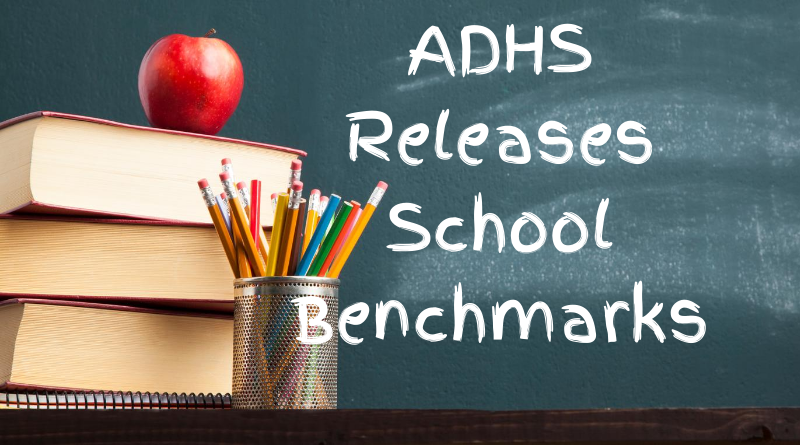Arizona Health Releases School Benchmarks
PHOENIX.– With the health of students, teachers, and staff as their top priority, the Arizona Department of Health Services (ADHS) and the Arizona Department of Education (ADE) have partnered in the development of guidance to support the safe reopening of in-person learning in Arizona schools.
According to a press release of the Arizona Department of Health Services, Per Governor Ducey’s June 23 Executive Order, Arizona:
Open for Learning, ADHS has established benchmarks in collaboration with local public health officials and education partners to guide decisions by public school districts and charter schools on when to offer virtual, hybrid, or in-person instruction amid the current COVID-19 pandemic.
Benchmarks are classified into minimal, moderate, and substantial transmission categories as defined by the Centers for Disease Control and Prevention (CDC) and align with the Arizona Department of Education’s Roadmap for Reopening Schools.
In the newly released Benchmarks for Safely Returning to In-Person Instruction, ADHS recommends schools consider county-specific public health benchmarks that provide recent information about community transmission.
This document is designed to be used in conjunction with ADE’s Roadmap. These include benchmarks around new cases, diagnostic test percent positivity, and COVID-19 related hospitalizations measured through syndromic surveillance.
For initial reopening of a hybrid based model that offers both virtual and in-person learning, ADHS recommends the following county-level benchmarks:
- Cases: a two-week decline in weekly average cases OR two weeks below 100 cases per 100,000 population
- Diagnostic test percent positivity: two weeks with positivity below 7%
- COVID-19-Like-Illness Syndromic Surveillance: two weeks with less than 10% of hospital visits due to COVID-like illness
“Our focus is ensuring that Arizona students and teachers have a safe and successful academic year, even though it may look different because of the ongoing pandemic,” Governor Doug Ducey said. “We know the critical services that in-person instruction provides for our children.
“…These benchmarks use public health data guided by recommendations from the county, state, and federal experts to inform our schools on implementing a safe return to the classroom.”
A dashboard available at http://azhealth.gov/schoolsCOVID19 indicates whether counties meet the recommended benchmarks for initial reopening of in-person learning in schools.
ADHS recommends that all three benchmarks fall into the moderate or minimal transmission ranges before schools in a county consider a hybrid approach of virtual and in-person learning.
When one or more benchmark categories are in the range of substantial transmission, ADHS recommends that schools work with their local health departments and start preparing for virtual learning.
Data on the dashboard will be updated weekly on Thursdays.
“The public health benchmarks released today by the Arizona Department of Health Services provide our school communities much-needed clarity on the safe reopening of schools,” said Kathy Hoffman, Superintendent of Public Instruction.
…“While it is clear that Arizona is not currently ready to resume traditional in-person or hybrid learning, we now have clear goals for knowing when it is safer to return to the classroom amid COVID-19. I urge all school leaders to use these benchmarks to make safe decisions about learning in this school year.”
ADHS has developed materials offering schools guidance on subjects such as what to do when someone is found to have COVID-19 symptoms. For children, ADHS materials include instructions on wearing masks, washing hands, physical distancing, and understanding COVID-19 symptoms.
“As a mother and public health professional, I know that getting kids back in the classroom safely is important to their overall health,” said Dr. Cara Christ, director of the Arizona Department of Health Services. “The level of COVID-19 transmission in the community is an important factor, along with the health of our health care system, in determining when it is safe to begin in-person instruction.”
¡Gracias por leer a The Border Reports!













